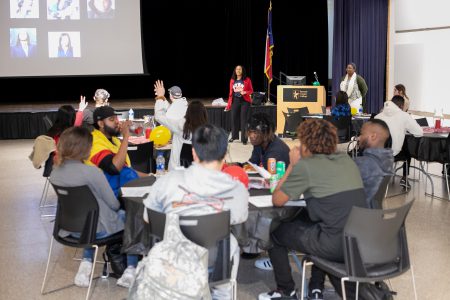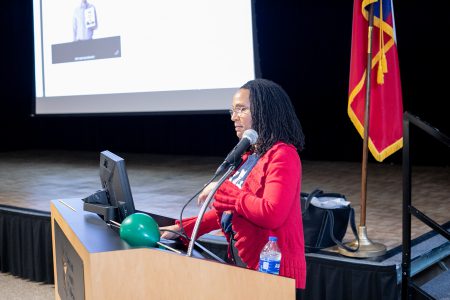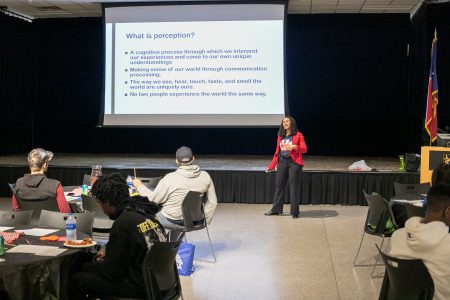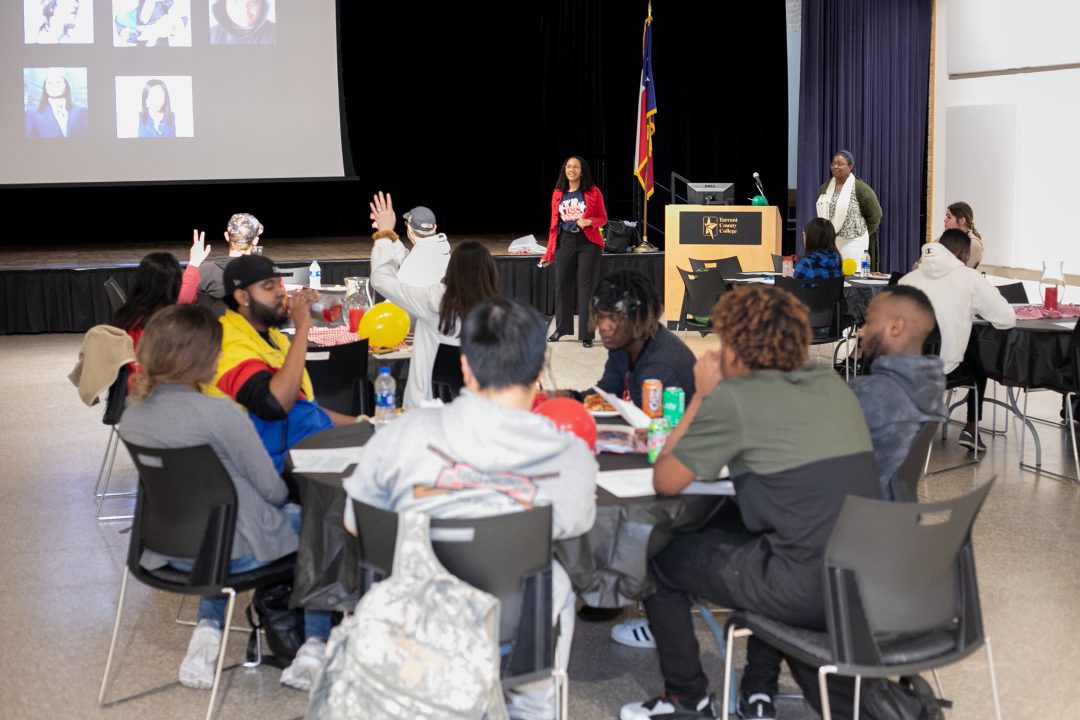| February 5, 2020 | Jill Bold | editor-in-chief |
|---|

Students investigated their potential biases in how people view the world in the Perception vs. Reality workshop presented by NE student activities Jan. 28.
“Perception is how we see the world. It’s a cognitive process,” NE instructor A’Isha Malone said. “It’s ongoing and it just happens…Bias is the unequal assessment between two alternatives, which typically puts one option in a favorable position and the other in an unfavorable one.”
She challenged students at the event to examine their biases by looking at a series of photographs of different strangers. She asked students if they needed to approach a stranger for money, what would that approachable stranger look like?
She presented pictures of different men and women of different ages and appearances and asked the audience members to explain who they would pick or not pick and why. Although the answers varied, most people said they would gravitate toward asking someone who looked friendly or looked like them. Malone explained how we form these judgments.
“Social context, appearance, how we were raised, anything social around us, what the world tells us – we need to be mindful of that,” Malone said. “We do it [show bias] everyday to other people. If you say you don’t, you’re not telling the truth.”
Bias is everywhere, and it’s difficult to escape, said NE student development associate Janjura Williams.
She explained that the Harvard Implicit Bias test, available online, was designed to show the test-taker what biases they have.

Tests to determine bias for or against different races, social classes, ethnicities, religions, genders and body types are just a few of the 41 different potential biases that people can test online.
“We want to know what our biases are because we live in a very diverse culture,” Williams said.
Williams encouraged students to get online and take the Harvard Implicit Bias test to see what biases they may have.
She said sometimes people are not aware of the biases they carry with them in life.
NE student Emmanuel Engenti is a business student who hopes to pursue a career in pharmaceutical sales and attended the workshop to gain knowledge and understanding of biases.
He said before coming into this event, he didn’t really know what bias was.

“I try to come to all these events to try to learn new things as much as I can,” Engenti said. “In my childhood, I wasn’t taught these things, so I’m trying to substitute for that by coming to events like this.”
Williams reminded students to fact-check themselves and their ideas.
Letting friends and loved ones hold you accountable for one’s views help create empathy and a better understanding of other people said Williams.
“Lean into that and be open to suggestions,” Williams said.

